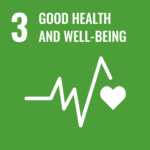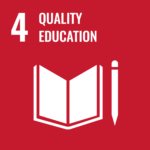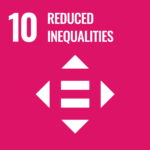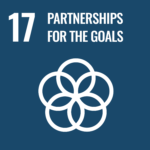Master of Health
The Master of Health is a second-cycle university degree that aims to train professionals in how to design strategies to promote, maintain and recover the population’s health and to prevent unhealthy behaviours and habits. The course trains nursing professionals in advanced practice, developing specific skills to diagnose, prescribe and provide specialist care.
The study programme enables students to take three specialisations:
- Minor in Health Promotion, which trains students so that they can offer advice for improving health and design, implement and lead health-related prevention programmes and health promotion projects.
- Minor in Advanced Mental Health Nursing Practice, which trains students so that they can make diagnoses as nurses, issue prescriptions and provide specialist care for people with mental health conditions, as well as designing specific programmes to promote mental health. This minor is for anyone with a first-cycle university degree in nursing.
- Minor in Advanced Chronic Condition Nursing Practice, which trains students so that they can make diagnoses as nurses, issue prescriptions and provide specialist care for people with chronic conditions, as well as designing specific programmes to promote health through all stages of life and active ageing. This minor is for anyone with a first-cycle university degree in nursing.
The study programme is made up of 120 European credits, 15 of which correspond to internships. This is a blended programme that adapts to each student’s needs, so that they can combine their studies with work.
The career opportunities this master’s degree offers are related to society’s changing health needs, population ageing, the emergence of new diseases and the rise in chronic and mental health conditions. This course also provides access to doctoral studies, thus helping to promote research in the field of health.
The Master of Health is evaluated and accredited by the AQUA (Andorran Agency for the Quality of Higher Education), which ensures its quality and European recognition. Students who pass these courses can obtain a master’s degree of Health, a state qualification issued by the Andorran Government.
Distinctive Features
The qualification enables nursing professionals to take a step towards advanced practice, defined as specialist practice in a specific area, such as mental health or chronic conditions.
Students on the programme will choose one of the three available minor options: Advanced Mental Health Nursing Practice, Advanced Chronic Condition Nursing Practice or Health Promotion.
Those who choose an Advanced Nursing Practice minor will carry out high-fidelity clinical simulations in laboratories equipped with cutting-edge technology.
The programme’s blended modality adapts to each student’s needs and allows them to combine their studies with professional activity.
Clinical internships can be conducted in medical centres either in Andorra or abroad.
This qualification is adapted to the new UdA educational model: a competency-based methodology that eliminates the traditional idea of subjects.
European level:
EHEA’s second cycle
Modality:
blended
Credit load:
120 European credits
Duration:
4 semesters
Languages:
Catalan
Calendar:
from September to June
Contact:
Gemma Ribera (gribera@uda.ad)
The Master of Health study programme is made up of 120 European credits distributed as follows:
- 105 compulsory European credits, including 15 internship credits, which are taken in semester 3, so that students can apply their knowledge, skills and attitudes in a real situation.
- 15 elective European credits (on campus or online) or mobility credits.
The following table describes the structure of the study programme for the Minor in Advanced Mental Health Nursing Practice:
| SEMESTER | MODULE | EUROPEAN CREDITS |
|---|---|---|
| 1 | M1. Health Epidemiology | 10 |
| M2. Health Equity | 10 | |
| M3. Health Promotion Strategies | 10 | |
| 2 | M7. Mental Health and Psychiatry | 15 |
| M8. Mental Health Case Management | 15 | |
| 3 | M11. Internship | 15 |
| M12. Elective credits or mobility | 15 | |
| 4 | M13. Research | 10 |
| M14. Master’s Degree Dissertation 1 | 10 | |
| M15. Master’s Degree Dissertation 2 | 10 |
The following table describes the structure of the study programme for the Minor in Advanced Chronic Condition Nursing Practice:
| SEMESTER | MODULE | EUROPEAN CREDITS |
|---|---|---|
| 1 | M1. Health Epidemiology | 10 |
| M2. Health Equity | 10 | |
| M3. Health Promotion Strategies | 10 | |
| 2 | M9. Chronicity | 15 |
| M10. Chronicity Case Management | 15 | |
| 3 | M11. Internship | 15 |
| M12. Elective credits or Mobility | 15 | |
| 4 | M13. Research | 10 |
| M14. Master’s Degree Dissertation 1 | 10 | |
| M15. Master’s Degree Dissertation 2 | 10 |
The following table describes the structure of the study programme for the Minor in Health Promotion:
| SEMESTER | MODULE | EUROPEAN CREDITS |
|---|---|---|
| 1 | M1. Health Epidemiology | 10 |
| M2. Health Equity | 10 | |
| M3. Health Promotion Strategies | 10 | |
| 2 | M4. Health Educational Intervention | 10 |
| M5. Health and Sustainability | 10 | |
| M6. Health Innovation and Technology | 10 | |
| 3 | M11. Internship | 15 |
| M12. Elective credits or Mobility | 15 | |
| 4 | M13. Research | 10 |
| M14. Master’s Degree Dissertation 1 | 10 | |
| M15. Master’s Degree Dissertation 2 | 10 |
- To access the minors in Advanced Nursing Practice (mental health or chronic conditions), the student must hold a bachelor’s degree in nursing or an equivalent qualification.
- To access the minor in Health Promotion, the student must hold a bachelor’s degree or an equivalent qualification.
Equivalent qualifications must be recognised by the Government of Andorra.
The competencies acquired by graduates in the Master of Health from the University of Andorra include the following:
CROSS-DISCIPLINARY COMPETENCIES
- Mastering communication in different languages to express and understand messages in different personal, social and professional contexts and situations.
- Working as a member of a team in a collaborative way with shared responsibility.
- Managing information and communicating knowledge, resolving situations in a society that is constantly evolving.
- Acting in accordance with ethics and social responsibility as a citizen and as a professional.
- Designing and developing enterprising projects and processes from a sustainable balance perspective to transform the environment.
SPECIFIC COMMON COMPETENCIES
- Designing innovative initiatives and strategies in the sphere of health based on critical analysis of person-centred care theories and models and on population health indicators, through transformative elements of change.
- Developing projects that guarantee a healthy lifestyle and promote well-being for everyone at every age.
- Developing research and innovation projects focusing on the health sphere and disseminating their results.
Specific competencies for the Minor in Advanced Mental Health Nursing Practice
- Carrying out a nursing diagnosis on people with mental health conditions and referring them to other professionals.
- Prescribing medication, diagnostic tests and therapeutic treatments to people with mental health conditions, in line with the legislation in effect.
- Applying specialist care relating to mental health conditions, especially in situations of vulnerability.
- Designing specific programmes to promote mental health.
Specific competencies for the Minor in Advanced Chronic Condition Nursing Practice
- Carrying out a nursing diagnosis on people with chronic conditions and referring them to other professionals.
- Prescribing medication, diagnostic tests and therapeutic treatments to people with chronic conditions, in line with the legislation in effect.
- Applying specialist care relating to chronic conditions, especially in situations of vulnerability.
- Designing specific programmes to promote health at all life stages and active ageing.
Specific competencies for the Minor in Health Promotion
- Implementing educational intervention with a global approach, taking into account the characteristics of the target population.
- Evaluating new health and sustainability objectives, anticipating complex future scenarios.
Director of the College of Health and Educational Sciences: Virginia Larraz Rada
Coordinator of the Master: Gemma Ribera (gribera@uda.ad)
The teaching staff of the Master is made up of lecturers with extensive academic and professional experience.
The list of lecturers that teach the Master can be viewed in the teaching plans of each of the modules, which have links on the study programme list.
In addition, the Directory of the University of Andorra enables students to search for and access the contact information on the UdA’s teaching, technical and administrative staff.
The UdA School of Nursing has agreements with some fifty hospitals, social and health centres and primary care centres, both in Andorra and elsewhere, so that students can carry out their compulsory internship during teaching hours in the third semester.
The master’s degree includes a total of 15 European credits for internship purposes, so that each student can show how they incorporate acquired competencies in a real situation in the area of their chosen minor (Advanced Mental Health Nursing Practice, Advanced Chronic Condition Nursing Practice or Health Promotion).
The goal is for the student to put their theoretical knowledge into practice, and in the case of internships abroad, to get to know other health care systems while strengthening their linguistic skills.
During the internships, the student will receive support from a tutor from their destination centre/department and an academic tutor. The tutors will guide the student through their learning and decision-making process, both in real situations and in the reflection process through learning activities.
The Master of Health offers a wide range of career opportunities, given society’s changing health needs, the ageing population, the emergence of new diseases and the rise in chronic and mental health conditions. These include:
- Health improvement consultancy.
- Design and implementation of preventive health programmes.
- Leadership of health promotion projects.
- Teaching, management and research.
- On top of that, the Advanced Nursing Practice minors prepare graduates to practise as professionals focusing on specialist mental health or chronic condition nursing practice.
The Master of Health provides access to third cycle studies (doctorate) in the countries in the European Higher Education Area.
- View the UdA Doctoral Programme









